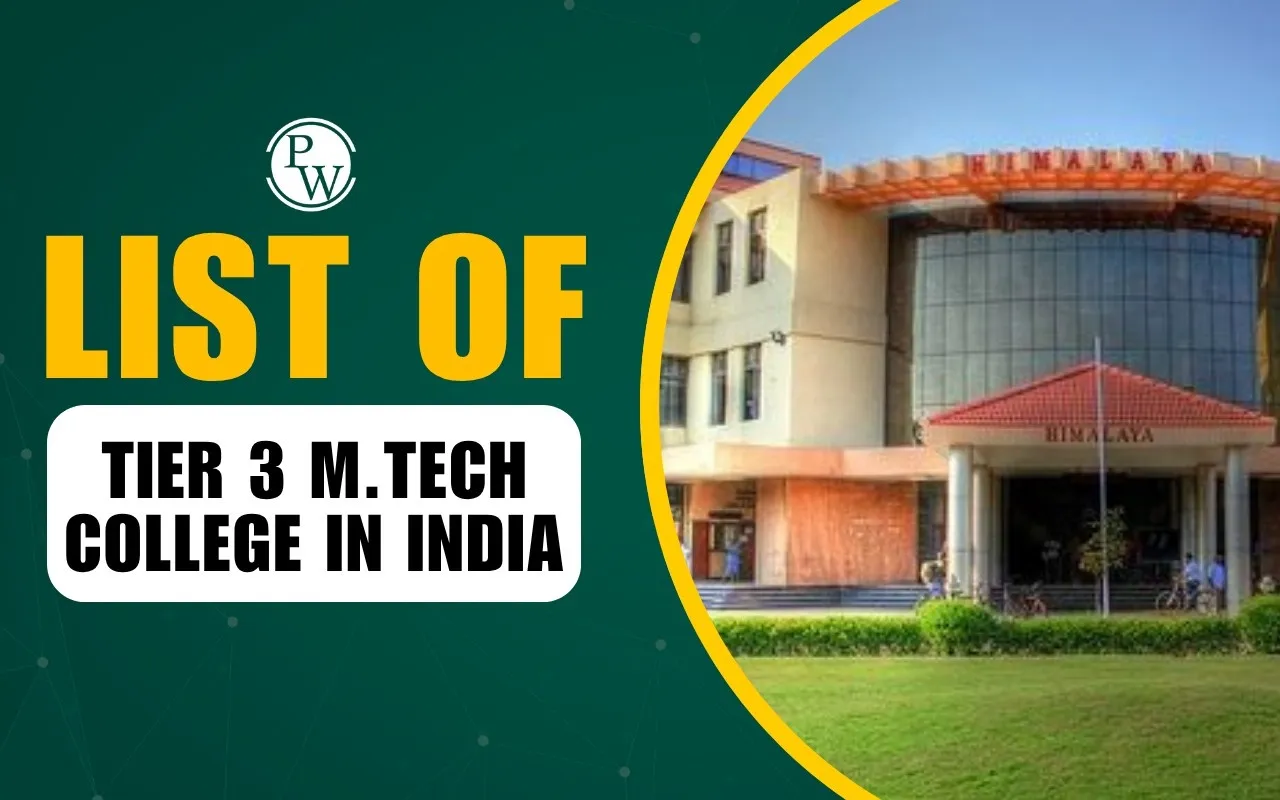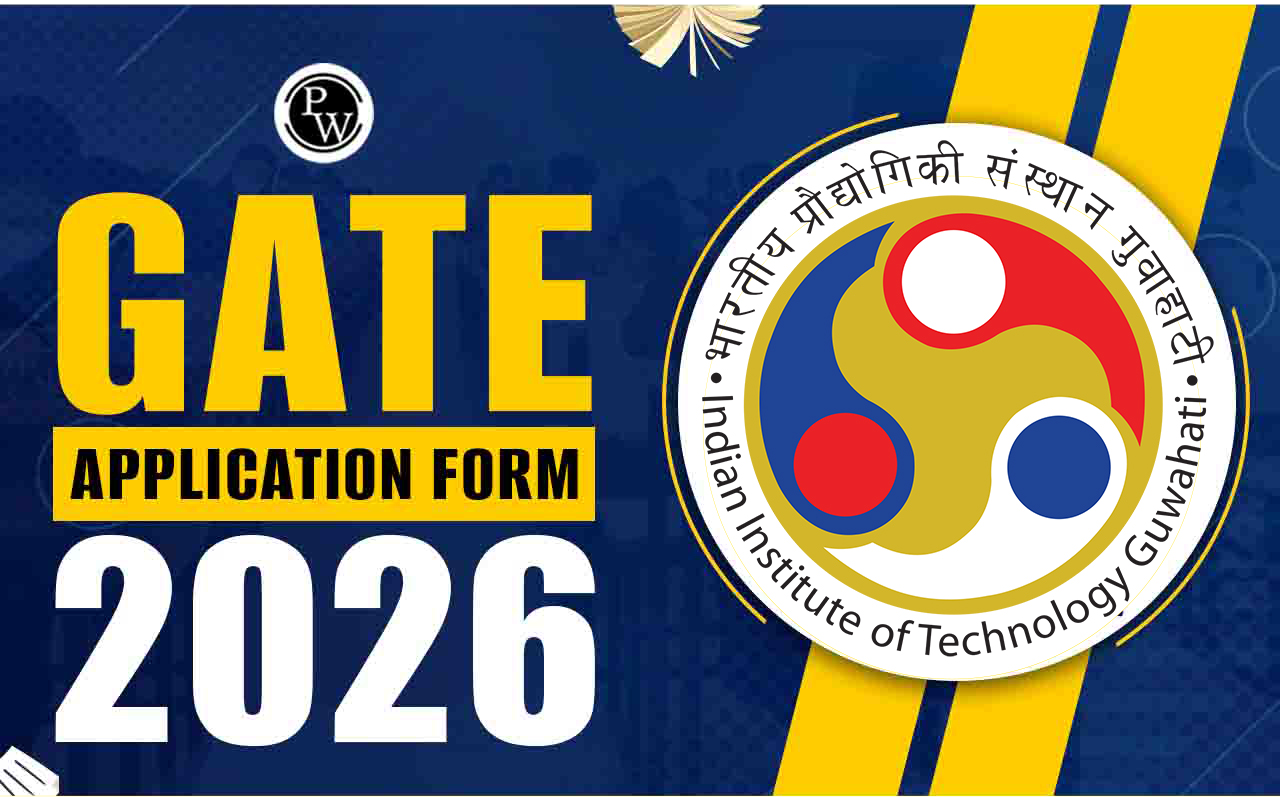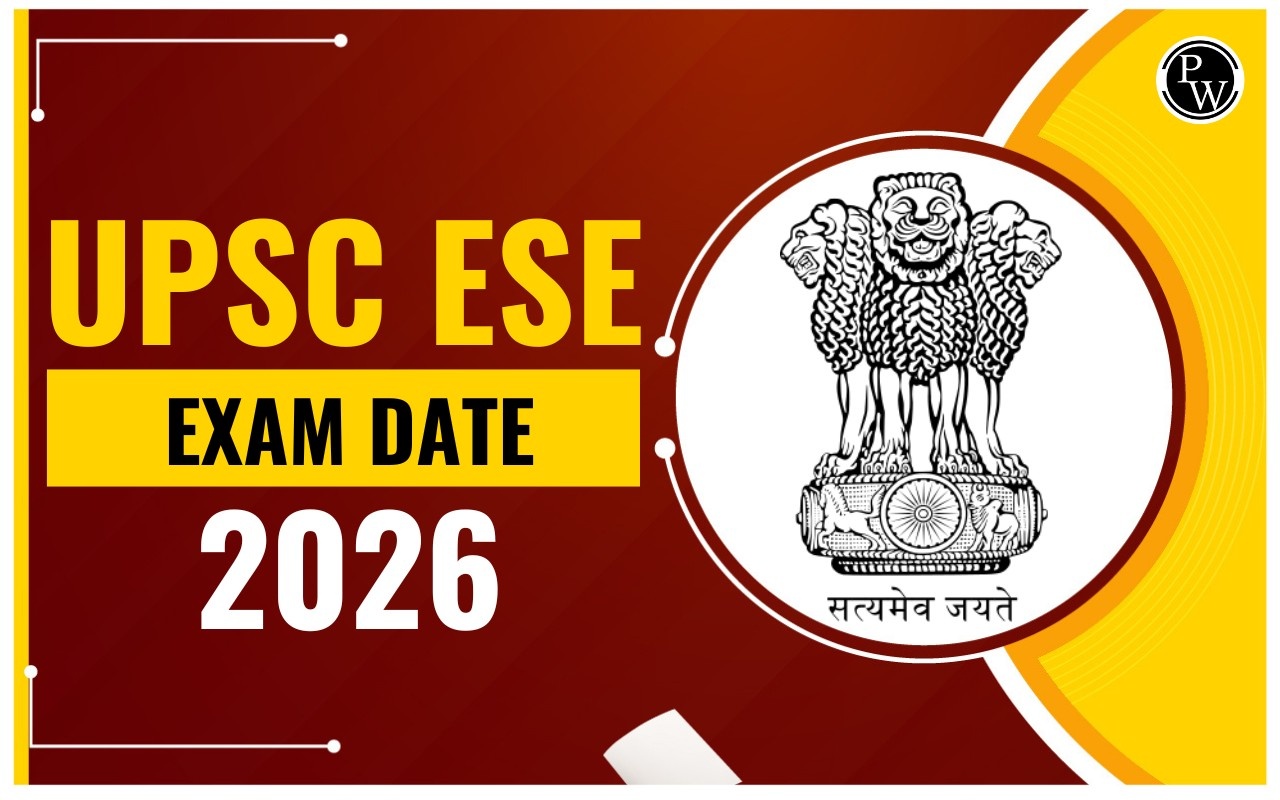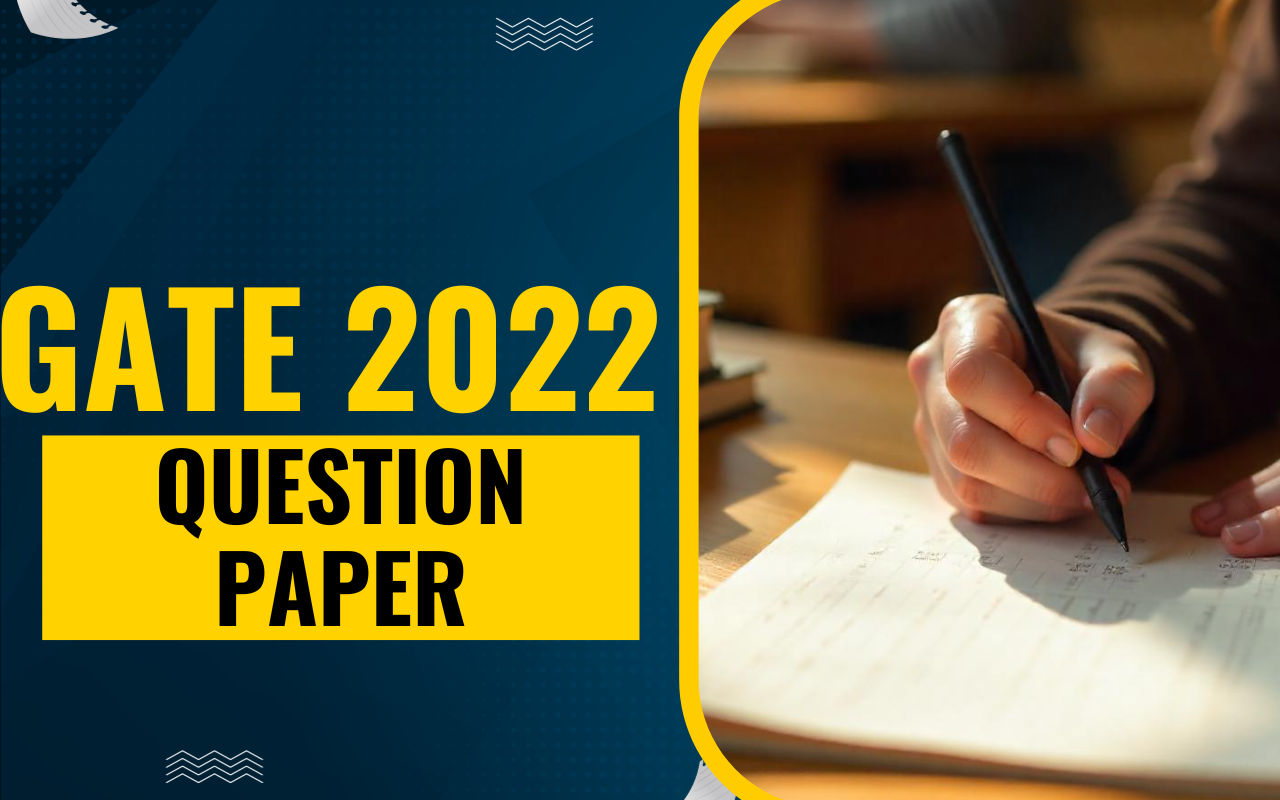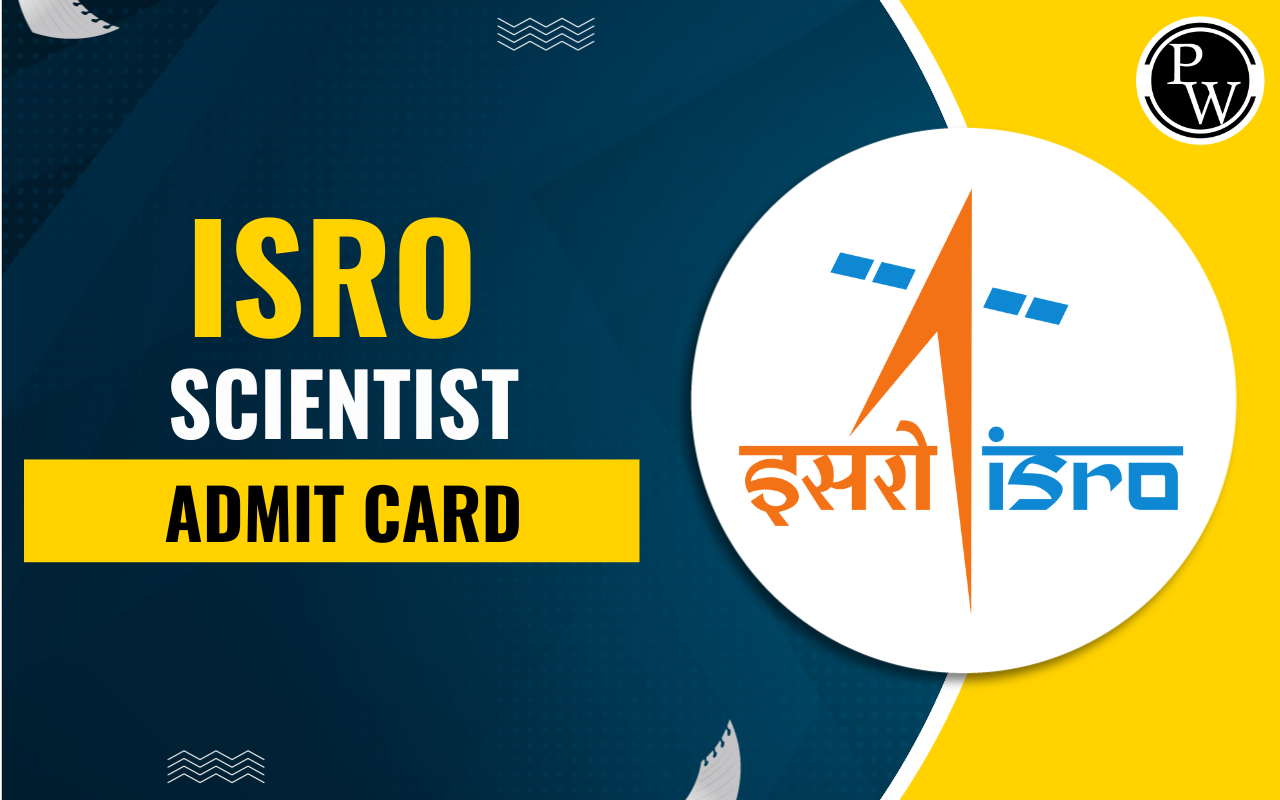
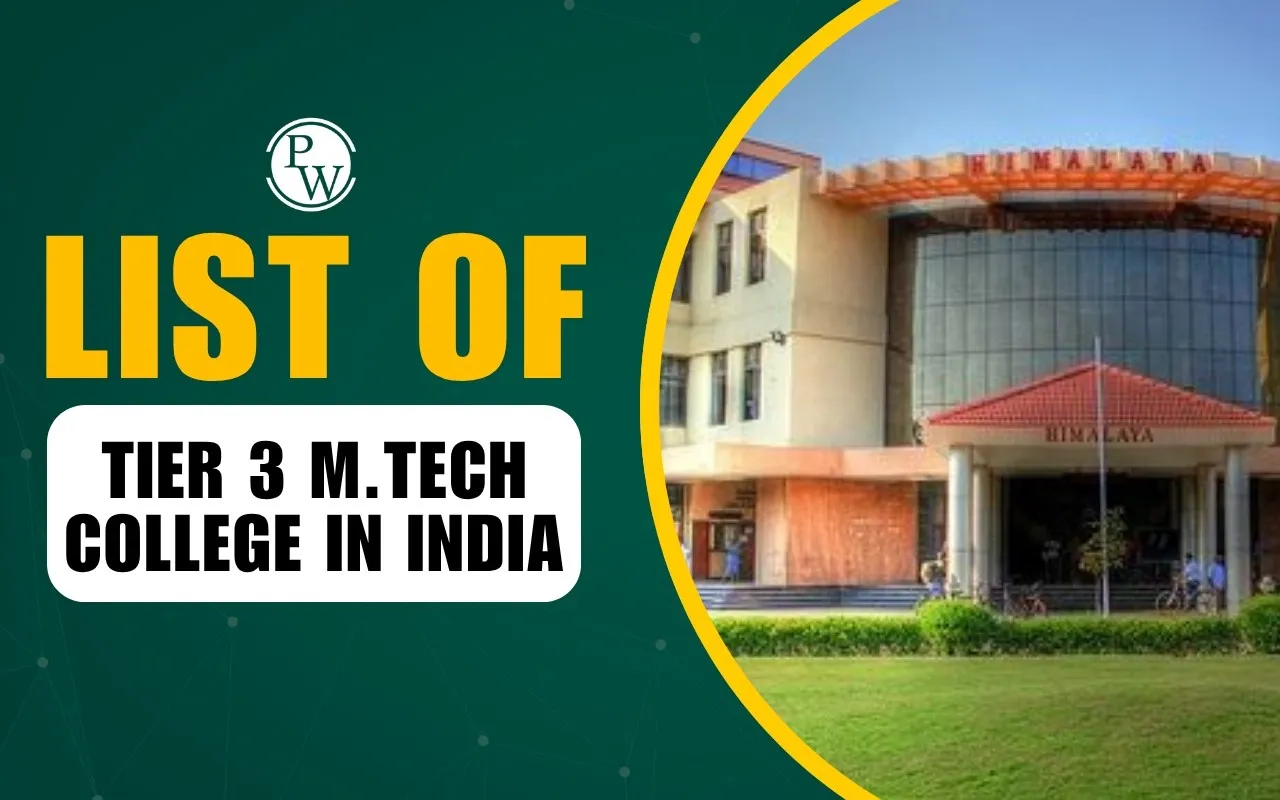
List of Tier-3 MTech Colleges in India: India has many Tier-3 MTech colleges that provide quality postgraduate engineering education without the high fees of top-tier institutes. These colleges focus on practical learning, research-oriented projects, and skill development across various engineering specializations.
They have flexible admission processes through state or college-level entrance exams and offer decent placement opportunities with reputable companies. For students looking for affordable and accessible MTech programs, Tier-3 colleges can be a great choice to advance their careers in engineering and technology.
List of Tier 3 MTech Colleges In India
If you are looking for affordable and accessible options for your MTech studies, Tier-3 colleges in India are a great choice. These institutions focus on practical learning and industry-oriented training across various engineering specializations.
They often have simpler admission processes through state, college-level, or management quota exams, making them easier to apply to. A large number of these colleges also provide decent placement opportunities with well-known companies, which enables the students to jump-start their careers or continue their studies.
Also read:
List Of Tier 1 M.Tech Colleges In India
List Of Tier 2 M.Tech Colleges In India
Top 10 Tier 3 MTech Colleges in India
Here is a list by region of Tier 3 MTech colleges of the top 10 colleges along with their locations. This will assist you in making a good decision on your career in engineering.
|
Top Tier 3 MTech Colleges in India |
|||
|
Sl.No |
College Name |
Region / State |
City |
|
1 |
Galgotias College of Engineering & Technology |
North India |
Greater Noida, Uttar Pradesh |
|
2 |
Shri Ramswaroop Memorial College of Engineering & Management |
North India |
Lucknow, Uttar Pradesh |
|
3 |
Loknayak Jai Prakash Institute of Technology |
East India |
Chhapra, Bihar |
|
4 |
Chandigarh University |
North India |
Mohali, Punjab |
|
5 |
Amity School of Engineering & Technology (Patna campus) |
East India |
Patna, Bihar |
|
6 |
Gaya College of Engineering |
East India |
Gaya, Bihar |
|
7 |
Aditya Engineering College |
South India |
Andhra Pradesh |
|
8 |
Annamacharya Institute of Technology & Sciences (AITS) |
South India |
Tirupati, Andhra Pradesh |
|
9 |
Bansal Institute of Engineering & Technology |
North / Central India |
Lucknow / Bhopal |
|
10 |
Loknayak Jai Prakash Institute of Technology (LJPIT) |
East India |
Chhapra, Bihar |
Eligibility and Admission Criteria for Tier 3 MTech Programs
Know the eligibility and admission process before applying for Tier-3 MTech. The following are the essential criteria and procedure to get admission.
-
Educational Qualification is 10+2 (or equivalent) from a recognized board with Physics and Mathematics as compulsory subjects and Chemistry, Biology or a Technical/Vocational subject as the third subject.
-
Minimum Marks / Percentage: Most of the colleges / universities require 45-50% in the aggregate in PCM for general category students, and for reserved categories, it is 40-45%.
-
Entrance Exams Accepted:
-
National level: JEE Main (in some colleges)
-
State level: State Technical Entrance Tests (e.g., OJEE, KEA)
-
College-level / Private Tests: Some colleges conduct their own entrance exams
-
Direct / Management Quota: Some seats are allotted based on 10+2 marks without requiring an entrance exam
-
Selection Process: Merit ranking based on entrance exam or 10+2 marks, document verification, and occasionally an interview or aptitude test. Seats are also allocated according to reservation categories.
-
Application Mode & Process: Apply online via the college portal or centralized state admission portals. You’ll need to upload your photo, signature, mark sheets, ID proof, and other relevant documents.
-
Reservation / Quota Policies: Colleges follow government rules for SC/ST/OBC/PwD reservations and often have management or institutional quota seats.
-
Management / Direct Admission Quota: Private Tier-3 colleges often offer management quota seats where admission is based purely on 10+2 marks (with minimum eligibility) and a higher fee.
-
Age / Other Criteria: Usually, there’s no strict age limit, but some colleges may require Indian citizenship or state domicile.
-
Documents Required:
-
10th & 12th mark sheets and certificates
-
Proof of identity (Aadhar, Voter ID, etc.)
-
Entrance exam scorecard (if applicable)
-
Category/reservation certificate (if applicable)
-
Passport-size photos
-
Transfer/migration certificate from the previous institution
-
Undertaking/affidavit forms as per college rules
Entrance Exams Accepted by Tier 3 MTech Colleges
Admission to Tier-3 MTech colleges in India is generally divided into several categories, which makes it easy for students to get admission in these colleges. Most colleges admit students through all India exam like GATE, and also some through state-level entrance exams for the states. Some colleges have their own entrance exams too, or give direct admission on the basis of their bachelor's degree results, particularly under management or institutional seats. This is a good relief for students as they can go for MTech from more than one entry point rather than being bound by one exam.
Placement Statistics of Tier 3 MTech Colleges
Placements play an important role in selecting an engineering college. Here is an overview of the placement records of the top Tier-3 engineering colleges in India, which will assist in making the right decision.
|
Placement Records of Tier 3 Engineering Colleges in India |
|||||
|
Sl.No |
College Name |
Highest Package (LPA) |
Average/Median Package (LPA) |
Placement Rate |
Top Recruiters / Highlights |
|
1 |
Galgotias College of Engineering & Technology (GCET) |
20.12 |
6–7 |
86% |
Cognizant, Infosys, Accenture, Bosch, Schneider |
|
2 |
Shri Ramswaroop Memorial College of Engineering & Management (SRMCEM) |
— |
4.5 |
90% |
Fortune 500 companies; 30% multiple offers |
|
3 |
Loknayak Jai Prakash Institute of Technology (LNJPIT) |
~12 (on-campus) / 20 (off-campus) |
2–4 |
40% |
TCS, Wipro, Infosys, HCL |
|
4 |
Chandigarh University (CU) |
1.7 Cr (Intl) / 54.75 (National) |
— |
Very High |
Microsoft, Panama Palo Alto, IBM, SAP Labs |
|
5 |
Amity School of Engineering & Technology (ASET) |
21.5 |
5 |
60–70% |
TCS, Cognizant, VRO |
|
6 |
Gaya College of Engineering (GCE) |
— |
— |
60–70% |
TCS, Infosys, Wipro, HCL |
|
7 |
Aditya Engineering College |
18.36 |
3.5 |
70% |
DXC, ICICI, Wipro |
|
8 |
Annamacharya Institute of Technology & Sciences (AITS-Rajampet) |
15 |
— |
84%+ |
TCS, Wipro, Microsoft |
|
9 |
Annamacharya Institute of Technology & Sciences (AITS-Tirupati) |
— |
4.25 |
40% |
Tech Mahindra, TCS, Wipro, Accenture |
|
10 |
Bansal Institute of Engineering & Technology (BIET) |
12–22 |
3.5–5 |
70–80% |
TCS, Wipro, HCL, Cognizant |
Why Opt for Tier 3 MTech Colleges?
Choosing the right engineering college is important for your career and future growth. Tier-3 engineering colleges provide several advantages that make them a practical and smart choice for many students.
-
Easy Admission Process: Admission through state-level exams, college tests, or direct 12th marks makes it accessible for more students.
-
Affordable Fees: Lower tuition fees make engineering education financially feasible without heavy loans.
-
Flexible Eligibility: Most colleges require 45–50% in PCM (slightly lower for reserved categories), giving more students a chance.
-
Multiple Admission Options: Management quota and direct admissions provide alternative ways to secure a seat.
-
Good Placement Support: Many colleges have tie-ups with companies, offering decent job opportunities.
-
Foundation for Further Studies: Tier-3 degrees help students pursue higher studies, competitive exams like GATE, or certifications for career growth.
Strengths and Limitations of Tier 3 MTech Colleges
Tier-3 MTech colleges provide students with a combination of pros and cons in postgraduate engineering. Knowing their strengths and weaknesses can help you make an informed decision for higher studies.
Strengths:
Tier-3 MTech colleges provide several advantages that make them a practical choice for postgraduate engineering students. Here are some of their key strengths that benefit students academically and professionally.
-
Affordable Fees: Tier-3 MTech colleges generally have lower tuition fees, making postgraduate engineering education accessible for many students.
-
Flexible Admission: Admissions are often easier, with options through state-level exams, college-level tests, GATE, or even direct admission based on undergraduate performance.
-
Practical Learning: These colleges focus on industry-oriented teaching and skill development, preparing students for real-world engineering challenges.
-
Placement Opportunities: Many Tier-3 colleges have tie-ups with companies, providing decent placement support for graduates.
-
Foundation for Higher Studies: Students can use their MTech degree as a stepping stone for research, competitive exams, or further certifications.
Limitations:
While Tier-3 MTech colleges have several advantages, they also come with certain challenges. Understanding these limitations can help students make a balanced and informed decision about their higher studies.
-
Lower Brand Value: Compared to top-tier institutes, Tier-3 colleges may have less recognition nationally and internationally.
-
Limited Research Facilities: Research infrastructure and funding may be less advanced than in top-tier institutions.
-
Fewer High-End Recruiters: Some high-paying multinational companies may focus on Tier-1 and Tier-2 colleges first.
-
Variable Quality of Faculty: Teaching quality and faculty experience may vary across colleges.
-
Limited Alumni Network: Networking and industry connections may be smaller compared to premier institutions.
How to Choose Right Tier 3 MTech College?
Choosing the right Tier 3 MTech college is an important step in developing your academic and career path. Here are some important factors to consider, so you can better make your decision.
-
Check Specializations Offered: Ensure the college offers MTech programs in your preferred branch of engineering.
-
Look at Placement Records: Review past placement data, top recruiters, and average packages to gauge career opportunities.
-
Consider Faculty and Infrastructure: Check the quality of teaching staff, labs, and research facilities.
-
Examine Admission Criteria: Understand entrance exams accepted, eligibility requirements, and management quota options.
-
Compare Fees and Scholarships: Consider tuition fees, additional costs, and availability of scholarships or financial aid.
-
Location and Connectivity: Consider the college’s location, nearby industries, and accessibility for internships or projects.
-
Alumni Network and Industry Links: A strong alumni network and industry collaborations can boost career prospects.
-
Student Reviews and Feedback: Look for experiences shared by current students or alumni about academics and campus life.
Elevate your GATE readiness with Physics Wallah’s GATE Online Courses. PW GATE Online Coaching offers comprehensive live sessions tailored to the syllabus, invaluable study materials, practice tests, and much more.
